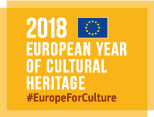Jazz and improvised music festivals mobile application and research tool

Challenge: WHY the innovation has been developed? What problem is addressed and why has not been not solved before?
Music festivals are very popular worldwide, engaging very diverse branches of population but also offering the opportunity to investigate how festival-goers, musicians, and other stakeholders experience and respond to the festival atmosphere, and the people they meet. Currently the market offers many types of apps enabling data collection, but concerns over data privacy and surveillance top-up often prohibitive costs. Festival organisations, attendees and researchers would greatly benefit from technologies enabling cheaper and better protected data collection, as well as access to real-time and historical material to enable a better understanding of festival environments.
Solution: WHAT the solution is about? HOW it goes beyond the state of the art?
The CHIME App is a mobile application developed through the EU and JPI-funded CHIME project, exploring innovative ways of planning and managing jazz festivals in online environments. In particular the App has the potential to significantly improve communication with – and measurement of – festival audiences.
End-users and examples of uses: WHO will beneficiate/ is beneficiating from the solution? WHERE and HOW the solution has been adopted? How will impact people or end-users? Add as more as possible examples of market and society uptakes
A novel way of engaging with the festival environment and fellow attendees helps managing festival schedules, navigating sites and communicating with friends and other users easier. Festival organisers are provided with a cost-effective solution for communicating with audiences before, during and after festival events, but the latest technological developments of the App are going further. An additional prototype for a CMS (Content Management System) will eventually allow researchers and festival organisations to design, create, deploy, and manage their own mobile applications and data collection processes.
Future possibilities: Future market perspectives when the innovation will be fully available or in use
Two pilot versions of the app have already been tested at the 2016 Cheltenham Jazz (UK) and the 2017 GMLSTDN Festival (Sweden). In the future, an Open Source version will enable further iterations and will potentially apply the technology to other sectors/subject areas. Concurrently a commercial product will be developed via Birmingham City University’s STEAMHouse initiative (https://www.steamhouse.org.uk) along with existing and new festival partners.
References for more information (eg. website, social media)
Contacts:
Craig Hamilton (craig.hamilton@bcu.ac.uk)
Application sectors:
- Historical sites
- Tourism economy and impacts
- Environmental sustainability and energy efficiency
- Heritage communities and participatory approach
- Enabling digital technologies for CH
- Audience development and impacts
- Intercultural dialogue
Objectives:
- Market/business development
- Consumers’ awareness and information, trust building
- Supporting environment (Infrastructures, intermediaires, new business opportunities)
- Knowledge sharing and education
RRI Dimensions:
- Public Engagement
- Open Access
- Ethics
Communities:
- Shared management of cultural heritage

